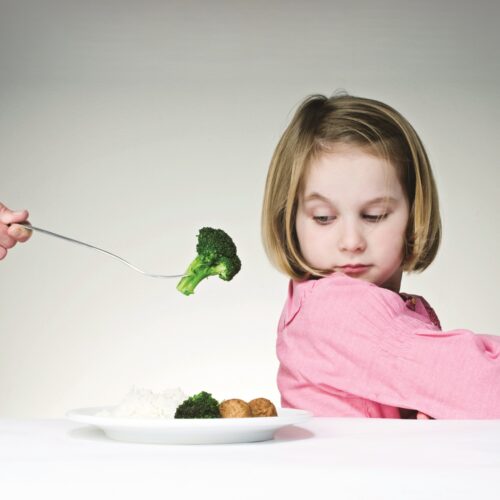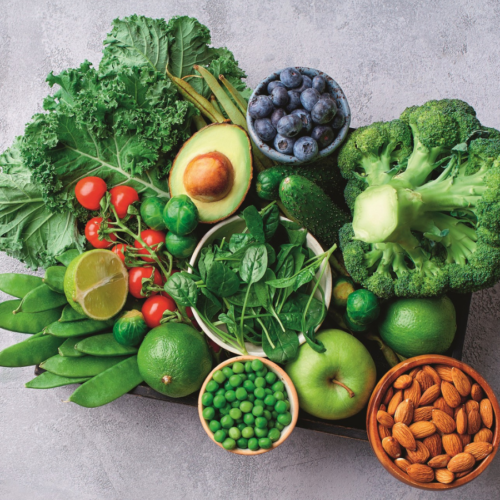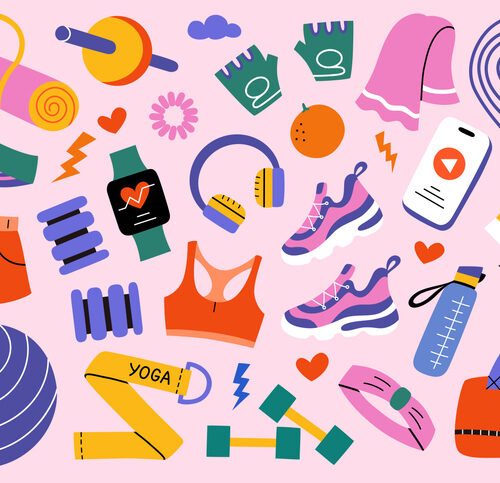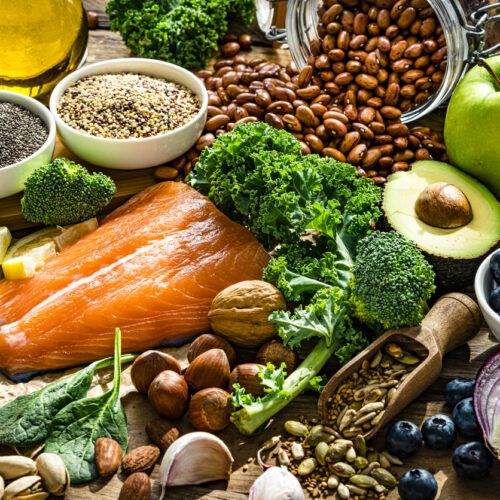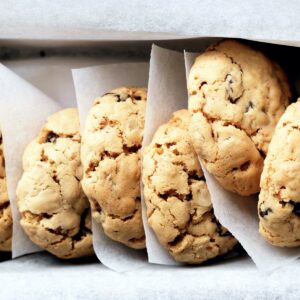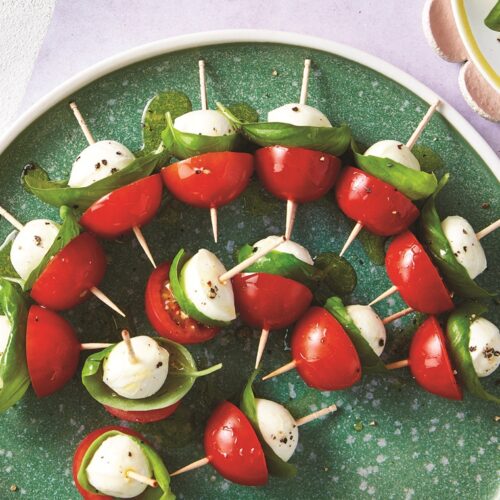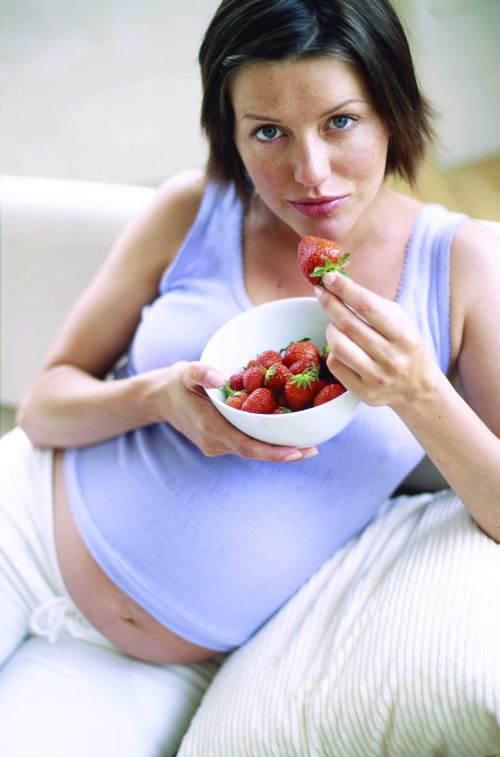
It can be a challenge to feel confident with your food choices when you're pregnant. Nutritionist Cindy Williams give you a guide to sensible eating when you're eating for two.
Pregnancy has got to be one of the most exciting and scary experiences in a woman's life. A brand new life is growing inside and he or she is totally dependent on you. What you eat, drink, breathe – even your emotions – these all affect the baby. It's enough to send anyone into nine months of paranoia!
Your doctor will have given you the 'list' of what not to eat and drink, and your friends and family may be earnestly 'advising' you through sharing their personal pregnancy horror stories. But there are plenty of foods which you and your growing baby can have, and need.
How much extra should I really be eating?
It would be nice to think that being pregnant gives us an excuse to 'eat for two' but, unfortunately, you don't need that much extra. Energy needs do increase in the second and third trimester. But rather than thinking kilojoules, it's better to think of eating more nutrients each day, such as an extra glass of milk, another piece of fruit, a few more vegetables and some extra fish, lean meat, chicken or beans.
Are these foods okay?
Soft cheese
Ricotta and cottage cheese, for example, are fine to eat within two days of opening. Buy small packs and use on crackers, sandwiches or baked potato. Use ricotta cheese which has been opened for a couple of days in cooking. Surface-ripened cheese such as camembert and brie are best left until after your baby is born as listeria can grow on these cheeses. If, however, you happen to eat some, chances are you will be fine.
Fish
Oily fish such as canned salmon and tuna provide vitamin D and omega-3 fats, which your baby needs for brain and nervous system development.
Larger and older fish such as snapper, mackerel and kahawai have had time to accumulate more mercury which isn't good for your baby, so the advice is to only have three to four serves a week. Check your 'not to eat' list for others. Choose small fish such as tarakihi, blue cod, hoki, John Dory, gurnard and flounder. Keep a stock of canned fish and eat two or three fish meals each week.
Alcohol
Whatever alcohol you drink, your baby also gets. Some say a little is harmless, but we can't say for sure if that's true. It's your choice how much alcohol you want to give your baby.
Peanuts
Peanuts contain protein, iron and healthy unsaturated fats. They make a great snack. Keep some low-fat, low-salt crackers and a jar of peanut butter (no added sugar or salt) by your work desk for a handy snack or lunch. You only need to avoid peanuts if you are allergic to them.
Deli meats
Fresh and hot are key for safe eating when you're pregnant. Listeria can grow on foods even in the fridge. To minimise the risk of listeria, eat chilled foods within two days. If you love ham and other deli meats, eat them hot (over 70°C) on a sizzling hot pizza, for example, or in a well-cooked pasta sauce.
Coffee
The caffeine in coffee gives your body – and your baby – a buzz. The Ministry of Health recommends a daily maximum of one double shot coffee or up to six cups of instant coffee or tea. People vary in their sensitivity to coffee so listen to your body. Make your coffee with plenty of trim milk to get plenty of calcium.
Parsley
Washed, fresh salad vegetables and herbs are all fine. If you aren't sure whether it is fresh, leave it. It may be okay, but if you're going to worry about it then it's better to leave it. Your baby can do without an anxious mum.
Are my cravings really my body telling me what it needs?
Cravings are caused by hormonal changes – and there are plenty of those happening when you are pregnant. If you crave healthy food, go ahead and enjoy. If you crave meat pies and a chocolate bar, try not to go overboard! Keep eating your usual healthy diet and hopefully the craving will eventually stop or change.
Dealing with morning sickness
- Drink plenty – water, juice or trim milk
- Rest plenty – have a good sleep at night and take a daytime nap if possible
- Eat little and often – small, regular meals
- If morning is your bad time, eat a few dry crackers or a banana before getting out of bed in the morning
- Skip strong flavours – avoid fatty, fried and spicy food
Choose cold food rather than hot food – it is less likely to have a strong smell and flavour - Sip ginger ale, ginger tea or other ginger drinks, as ginger has anti-nausea effects
- Carry a handkerchief with lemon or another nice scent to breathe into if a nauseating smell is overpowering
Before and after pregnancy tips
Pre-pregnancy
Folate is the one nutrient you need lots of in the first three months of pregnancy – and even before you realise you're pregnant. Folate is essential for your baby's normal growth, especially to reduce the risk of spina bifida.
If you plan to become pregnant, see your GP for a prescribed folate supplement. And eat plenty of folate-rich foods: avocado, yeast extract, whole grains, dried beans, split peas, baked beans, citrus, nuts, folate-fortified breakfast cereal and fruit juice, and green leafy vegetables.
Post-pregnancy
After delivering a baby, all most mums want is a nice cup of tea and a good night's sleep. But your baby's needs are constant. So you really need to take care of yourself to take care of your baby.
- Eat an extra serving of food from each food group (fruit and vegetables; breads and cereals; dairy; and meat, fish and legumes) to cope with the high energy demands of breastfeeding
- Eat three good meals with snacks in-between
- Drink plenty of water
- Have a jug of water by your bedside and next to where you breastfeed
- Continue to eat iodine-rich foods – seafood, eggs and trim milk. A New Zealand study of breast-fed infants found iodine levels were less than half that of formula-fed infants due to the mother's low iodine status.
www.healthyfood.com


